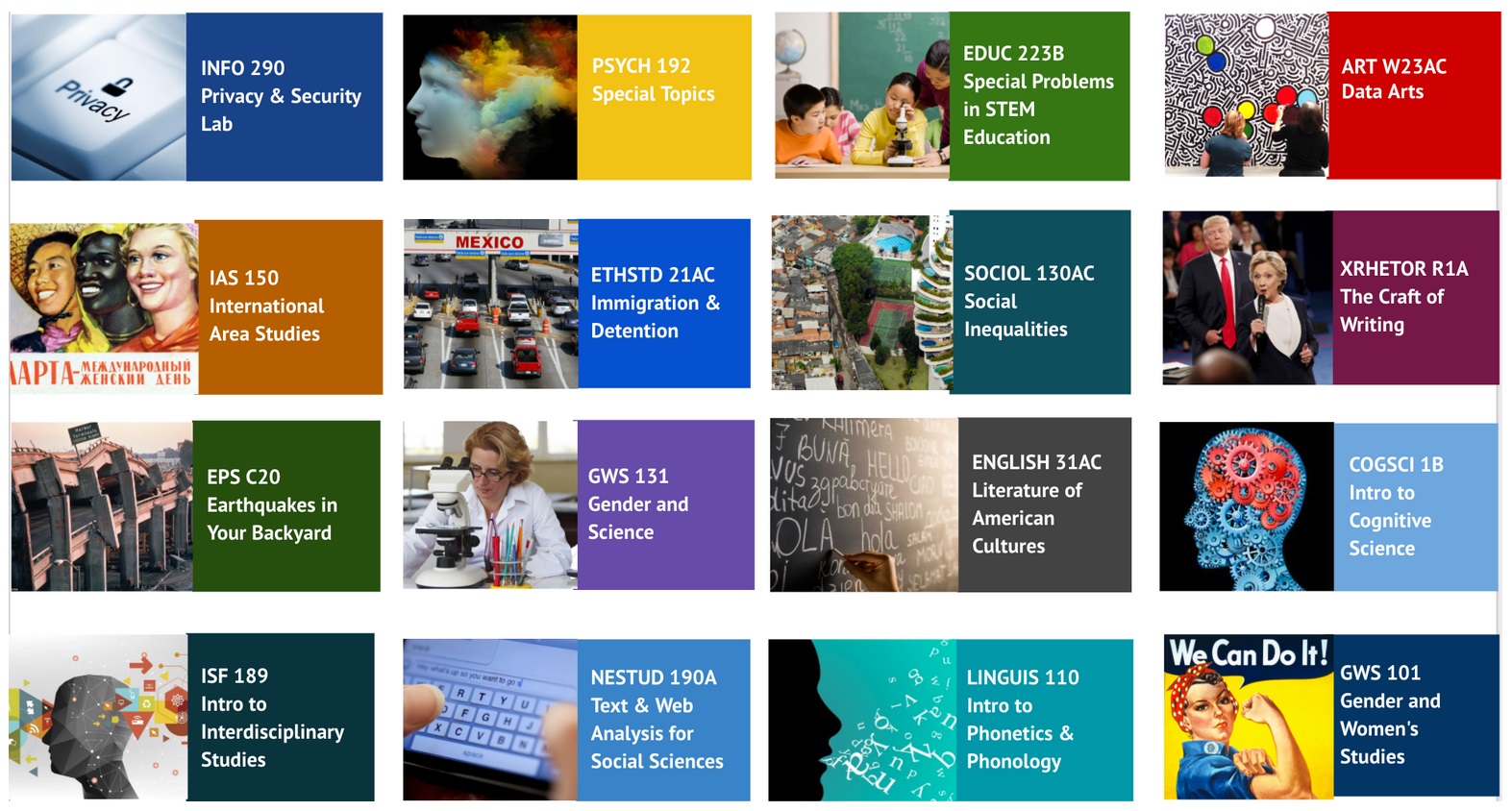What is a Data Science Module?#
The Guide has moved!
The information on this website may be outdated as of July 2025. Please view the new curriculum guide located at https://curriculum-guide.datahub.berkeley.edu/
A Data Science Module is a short exploration of data science designed to fit into an existing course. Modules give non-data-science students the opportunity to explore data-driven methods in familiar domains.
Each module is designed by a team of CDSS curriculum developers, working closely with the course instructor, and may be taught by either the CDSS team or the instructors themselves.
An overview page is available here.

Prerequisites#
Data science modules can be used in all types of subjects and skill levels- no extra prerequisites required! Each module is designed to meet students where they are. Any necessary coding skills or statistical concepts are highly targeted towards the goals of the course and taught during the module itself.
Module structure#
Because modules are designed to integrate into current course material, every module looks different. A module often is presented as an interactive lecture or lab. Led by either course instructors or a modules team developer, students can write and execute code, make visualizations, and process data in real time. Modules may also include take-home coding, computation, or critical thinking assignments. A module can take up a single class or discussion period, or they may be spread out over a few weeks.
A few logistical concerns to consider are module timing and length. For example, a module scheduled during midterms might fit the schedule of the course, but not of the students. And, if part of the course is modularized, that may mean that homeworks or exams should also be modularized.
Previous Data Science Modules:#
In the past, modules have been taught to everyone from freshmen with no coding or statistics experience to seniors taking upper-division econometrics. To date, CDSS modules have been made for courses in:
Sociology
Legal Studies
Economics
Psychology
Information Studies
Medieval Studies
Rhetoric
Gender and Women’s Studies
Linguistics
Education
You can browse past module materials on the program’s Github page.
